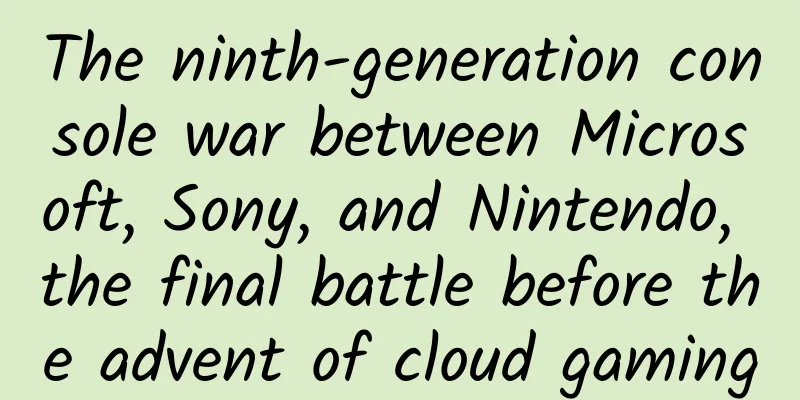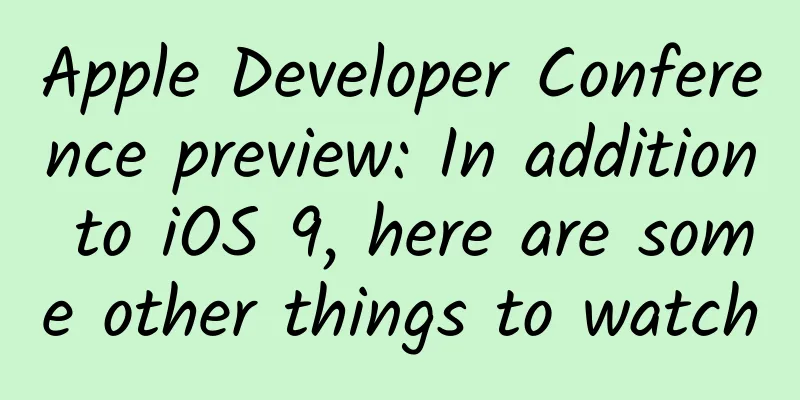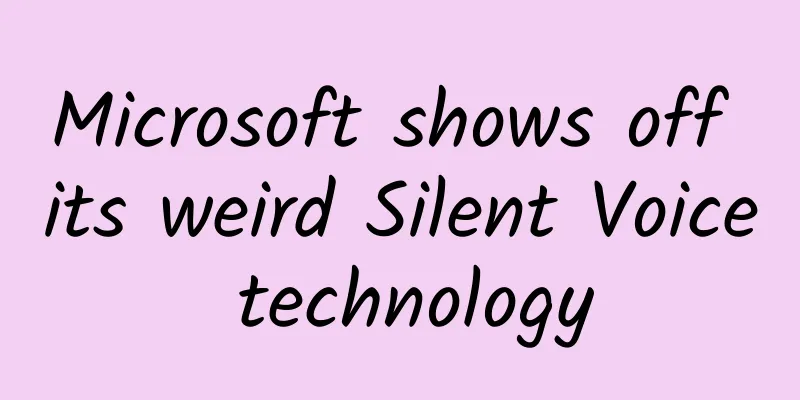The ninth-generation console war between Microsoft, Sony, and Nintendo, the final battle before the advent of cloud gaming

|
Every 15 years, a major new technology platform emerges in the world. It has been 14 years since Apple introduced the iPhone to the world and ushered in the era of mobile Internet. A new generation of technology platform is about to emerge. Some people believe that the next generation of technology platform will be AR devices that can provide a higher sense of immersion, while others believe that brain-computer interfaces are getting closer and closer to us. However, it can be lighter than a smartphone but have higher computing power. It is almost certain that the next-generation technology platform will use cloud computing as its brain. After all, with the advent of the 5G era, the network environment can provide sufficient high-bandwidth and low-latency support. Perhaps this trend is not very obvious today as smartphones become more powerful. However, in the gaming industry, which requires a lot of computing power, this is not a new topic, and “cloud gaming” is not a new concept. Game consoles and performance "Performance" is one of the most frequently mentioned words in the game console circle. Although from the history of the "war" of each generation of consoles, performance often cannot determine the final outcome, and even in the sixth generation of consoles, performance and sales are completely inverted, but this still cannot stop the prevalence of "macro-counting party" in the console circle. After all, when it comes to game consoles, senior PC gamers are inevitably dismissive. The RTX 3080 graphics card, which is sold out, starts at $699, which is $200 more expensive than the high-end versions of the next-generation consoles PS5 and XSX that have not yet been released. Compared with high-end PCs, game consoles are nothing more than outdated gaming hardware that has already been released. Players are willing to pay for game consoles, on the one hand, because consoles are more cost-effective than PCs. Although the performance is compromised, game consoles can perform well because of targeted optimization by game manufacturers. Of course, this does not mean that performance is not important in the gaming industry. The "handheld game consoles" that were popular many years ago failed at the performance threshold. The industry generally believes that 3DS and PSV are the last generation of handheld game consoles. The Nintendo Switch, which can switch between portable and dock modes, is actually a console, and the two and a half hours of battery life of the first version proves this. 3DS and PSV originally took over a huge handheld market. According to statistics, Sony PSP has sold 80.7 million units worldwide, and Nintendo NDS has sold 153.8 million units. In other words, handheld game consoles were once a huge market with 200 million users. However, with the rise of smartphones, the positioning of handheld game consoles has also become blurred. Sony's last generation handheld game console PSV was discontinued in March 2019, with more than 16 million units sold during its life cycle; on September 22, 2020, Nintendo announced on its official website that the entire 3DS series was officially discontinued, with total sales of more than 75 million units during its life cycle, of which about one-third of the sales came from Japan. After two generations of handheld game consoles, the entire market has shrunk by 67%. In the era of smartphones, handheld game consoles with inadequate performance are in an awkward situation. Nintendo successfully held the market with its powerful first-party game lineup and strong support from third parties, but the heterogeneous strategy of NDS and Wii did not work at all on 3DS and WiiU, which directly led to the defeat of WiiU. Sony is trying to continue the Cross Play strategy of the PS3 era on PSV-PS4. It has to be admitted that Sony's concept of immersing people at home in PS4 and TV big screen, and enjoying the portability of PSV when outside is very advanced. Unfortunately, the performance gap between PSV and PS4 is too big, and the Cross Play strategy has become a lame leg. Sony also hoped to solve the problem with remote streaming, and even launched a 3G version of PSV, which can be regarded as a "private cloud" cloud gaming solution to some extent. There was no node acceleration, the network fluctuated greatly, and the PSV buttons were different from the PS4's DS4 controller. Sony's solution did not perform well and failed to prevent PSV from being delisted. If performance is not good enough, the cloud can make up for it. Although the industry generally does not consider Switch to be a handheld game console, Switch continues the biggest feature of Nintendo's home consoles since the Wii - poor performance. In 2017, in the middle of the eighth generation, Nintendo launched the Switch, which had functions similar to those of the seventh-generation mainstream consoles. Although it unexpectedly achieved huge success relying on the still powerful first-party and the explosion of massive independent games, the backward functions prevented the Switch from receiving support from mainstream third parties. Those cross-platform games and annual games on the market have not been available on the Nintendo platform for 10 consecutive years. Nintendo has also tried cloud gaming. In 2018, Nintendo launched cloud gaming versions of Resident Evil 7 and Assassin's Creed: Odyssey, but they did not receive a good response from the market due to poor user experience. In general, the Wi-Fi module of Switch is too backward and does not even support 5G. In addition, the number of nodes on Nintendo's cloud gaming servers is far from enough to support a smooth network experience. In 2019, in an interview with Time magazine, Doug Bowser, president of Nintendo of America, said that Nintendo recognized the potential of cloud gaming, but still hoped to create a "seamless" gaming experience through Switch. Among the Big Three console manufacturers, Microsoft is probably the most loyal supporter of cloud gaming. In 2013, Xbox One's sales were crushed by Sony because its performance was inferior to PS4 and its price was $100 higher because it was bundled with Kinect. At that time, Microsoft developer Boyd Multerer pointed out that Xbox One supports cloud computing functions and can hand over some low-priority computing loads to cloud computing servers. Although Microsoft eventually launched the high-performance half-generation upgrade model Xbox One X Scorpio, it is clear that Microsoft's ambition for cloud gaming has never faded. Since the Xbox One era, Microsoft has embarked on a completely different path from Nintendo and Sony. Microsoft has stopped announcing the sales of its Xbox One series consoles since 2105. However, since AMD supplies CPUs and custom GPU chips for game consoles to both Sony and Microsoft, the data provided by the company as a direct supplier is more reliable than that provided by third-party agencies. In the latest financial report, AMD officially stated that the total sales of PS4 and Xbox One were 150 million units. A few weeks ago, Sony officially announced that the cumulative sales of the PS4 family were 109 million units. This means that Microsoft's Xbox One console family sales were 41 million units, 68 million units less than PS4. However, although sales are less than half, Microsoft's profitability is not bad. In the first quarter of 2020, Sony's game and network service business, mainly PlayStation business, had sales revenue of US$5.8 billion and operating profit of US$1.2 billion. In Microsoft's fourth quarter financial report for fiscal year 2020 ending June 30, Xbox game revenue and game service revenue reached US$1.3 billion and US$1.2 billion, respectively. These two parts of revenue increased Microsoft's personal computer business unit revenue by 14%. Unlike Sony and Nintendo, Microsoft has launched a NetFlix-like subscription service, Xbox Game Pass, which allows Xbox and Windows users to play Microsoft's game library for $10 per month. For comparison, as of June 2020, Sony had 45 million PlayStation Plus subscribers, while Xbox Game Pass already had 15 million subscribers, three years after its launch on Xbox and one year after its launch on Windows. The huge success of Xbox Game Pass comes from the huge game library created by Microsoft, and many blockbuster works including those from Microsoft's first-party studios are able to join the "free" camp as soon as they are first released. Recently, Microsoft spent 7.5 billion US dollars to acquire the famous game company ZeniMax Media, acquiring famous IPs such as "The Elder Scrolls", "Fallout", and "The Evil Within", and its game studio lineup has reached 23. In an interview, Microsoft CEO Satya Nadella specifically emphasized that Microsoft believes gaming software will be the key to the future and Microsoft will not stop its acquisition efforts. Not only that, Microsoft also recently announced that it will integrate EA Play into Xbox Game Pass this Christmas, allowing Xbox Game Pass subscribers to play EA games for free. Netizens said that it is hard to imagine what price Microsoft offered to EA. It is widely speculated that Microsoft is using its "money power" to continue buying in order to continue to enhance the Xbox Game Pass game lineup and allow more high-quality games to enter the Xbox Game Pass content library as soon as possible. However, referring to the video platforms in the world that use the "buffet" subscription method today, from NetFlix to domestic iQiyi, Youku and Tencent Video, all have been dragged into losses year after year due to expensive copyright fees. What is Microsoft planning? Cloud computing leads the next generation of technology platform The answer is still cloud gaming. On September 15, Microsoft officially launched its cloud gaming service Project xCloud, with the initial lineup of 150 games, including major titles such as "Gears of War 5", "Devil May Cry 5", "Forza Motorsport 4: Horizon", and "Madden NFL 20". Cloud gaming can place the computing core on the core server, turning all devices with video decoding capabilities into high-performance game consoles. Rather than waiting for cloud gaming to revolutionize game consoles, Microsoft decided to revolutionize itself by building its own cloud gaming ecosystem in addition to game consoles. It is no wonder that Microsoft is indifferent to the sales of its own game consoles, and seems to be willing to let others do whatever they want. In the era of cloud gaming without terminals, game content has become almost the only dimension in which cloud gaming platforms can compete. "Content is king" will become inevitable, and Microsoft has already started its layout. It can be said that the battle situation of the ninth-generation console war will not affect Microsoft's leading position in cloud gaming. Therefore, it is not difficult to understand why Xbox executives have repeatedly stated in public that "it doesn't matter that Xbox Game Pass is losing money now, it can bring us long-term benefits." Recently, Facebook CEO Mark Zuckerberg said in an interview with YouTube celebrity Marquees Brownlee that AR will replace smartphones in the near future and even replace all screens in people's lives. Devices that require screens, such as TVs and tablets, will appear in AR glasses in the form of an application. The technology platform will usher in a revolutionary update approximately every 15 years, each time providing stronger performance and a more immersive experience. In the interview, Zuckerberg mentioned that Facebook's investment in AR is "unprecedented" and the glasses it creates are "good-looking glasses" rather than "super thick glasses." Zuckerberg painted a picture of a future in which all smart devices with screens would be replaced by AR glasses, but he did not point out how the computing unit would be housed in the "good-looking glasses." Combined with the previous news that Facebook acquired the cloud gaming service platform PlayGiga for US$70 million, we have reason to believe that cloud computing is also an important piece of the puzzle in Zuckerberg's future vision. As a consumer electronics, games have been driving the evolution of computer performance. Now that Moore's Law has failed and the next generation of technology platforms are about to emerge, will games become the backbone of cloud computing? Let's wait and see. As a winner of Toutiao's Qingyun Plan and Baijiahao's Bai+ Plan, the 2019 Baidu Digital Author of the Year, the Baijiahao's Most Popular Author in the Technology Field, the 2019 Sogou Technology and Culture Author, and the 2021 Baijiahao Quarterly Influential Creator, he has won many awards, including the 2013 Sohu Best Industry Media Person, the 2015 China New Media Entrepreneurship Competition Beijing Third Place, the 2015 Guangmang Experience Award, the 2015 China New Media Entrepreneurship Competition Finals Third Place, and the 2018 Baidu Dynamic Annual Powerful Celebrity. |
>>: NIO: In October 2022, NIO delivered 10,059 vehicles, a year-on-year increase of 174.3%
Recommend
How to set the golden three seconds of short videos? How to make use of the golden three seconds?
My videos never become popular, it’s really confu...
A must-read for H5 game channel operations: current situation, difficulties and future
It has been almost a year since I left a big web ...
Morning jogging vs night jogging, which is healthier? The answer is unexpected
Running is a globally popular sport, popular for ...
WeChat official account SEO ranking dominates the screen, how does WeChat official account make money?
I have been researching how public accounts can d...
Make 300+ a day with regular and lucrative postgraduate entrance examination materials projects, new ways to play old projects_Gao Peng Circle
Gao Pengquan's 108 online earning strategies,...
Meituan Operations: The Marketing Logic of Meituan Takeaway Monthly Card
Buy monthly pass at super low price First, let’s ...
The secret of a brand becoming popular at a low cost
Generally speaking, marketing will plan a series ...
How to get traffic on the Internet - tips on how to attract traffic
You know a lot of ways to attract traffic . You h...
How to avoid fragile code
[[165073]] The most common problem with legacy co...
How can products improve user stickiness? Here are 3 tips
These people used to be our customers, but they d...
How much does it cost to attract investment in the Haikou children’s clothing mini program? What is the investment quotation for the Haikou children's clothing mini program?
How much does it cost to invest in the Haikou chi...
Baimei VIP course (focused on honest people transformation)
Baimei VIP course (focused on honest people trans...
Smart products are not a panacea. Home appliance companies should not blindly transform.
The idea of smart home appliances has been prop...
These 5 types of people are more likely to get cancer! If you are in this situation, be sure to take precautions!
There are always people asking what kind of peopl...
Ghosn may no longer serve as Renault CEO, successor will be found from within
According to foreign media reports, Carlos Ghosn,...









